Alberta
Province shares plan for school relaunch

From the Province of Alberta
Students returning to school for 2020-21 school yearStudents will return to learning in classrooms across Alberta at the beginning of the new school year. Schools will be ready to welcome students under scenario 1, which is near-normal daily operations with health measures. Alberta’s government has developed a re-entry tool kit to prepare parents and students for what to expect in the new school year. The tool kit includes videos for students explaining some of the health measures, a guide for parents, frequently asked questions, school posters, a self-screening questionnaire in multiple languages, and links to health guidelines.
Under scenario 1, schools will implement a number of public health measures, which include frequent cleaning of surfaces, placing hand sanitizers at school entrances and classrooms, grouping students in cohorts, and planning the school day to allow for physical distancing, which could include staggering start times for classes, recesses and lunches. Additional public health measures may be established prior to September on the advice of the chief medical officer of health in consultation with the education system. In addition, students, staff, parents and school visitors will be expected to use a self-screening questionnaire daily to determine whether they can enter the school.
Successful transition to summer school and child careAlberta’s school re-entry plan works, and already has mitigated risks to students and teachers. Throughout the summer, the Calgary Catholic Separate School Division ran in-person summer school programming in accordance to the guidelines developed and issued by the province. These comprehensive guidelines have mitigated risk, resulting in no COVID-19 outbreaks among teachers or students participating in summer school. Additionally, Alberta has seen a successful reopening of child care centres across the province. Children and staff have safely returned to these centres with no outbreaks occurring. School authority fundingSchool authorities have returned to full funding levels as of July 1, and every school authority in Alberta is receiving a funding increase for the 2020-21 school year – roughly $120 million across the province. A list of funding for every school authority is available here. In addition, the Minister of Education has approved the use of school board reserves, if needed, to help cover local COVID-19-related costs. The total amount of money sitting in school board reserves is $363 million. Accelerated capital school fundingThe province has also provided school boards an additional $250 million to support accelerated capital maintenance and renewal projects, as part of the more than $10 billion infrastructure spending announced in the Alberta Recovery Plan. This funding supports infrastructure enhancements that will help in a COVID-19 learning environment. Seventy-nine school projects totalling $15 million are moving forward with this primary purpose, including upgrades for enhanced hygiene such as hands-free sinks, automatic flush toilets, touchless soap and paper towel dispensers, automatic doors and water bottle filling stations to replace water fountains. New online Student Learning HubA new Student Learning Hub on new.learnalberta.ca is available for parents, students, and teachers to more easily access educational materials to support development of student literacy and numeracy, and provide health and wellness information. The online hub is another resource to support Alberta’s school re-entry plan, with recognition that more online learning resources may be needed during the upcoming school year. Additional resources will also be added throughout the school year. Expanding diploma examsDiploma exams will be offered in every subject in the November and April exam sessions. Expanding the offerings of the diploma exams will support school authorities who are shifting high school programming to a four-semester system as part of their COVID-19 re-entry plan. This shift allows for better cohorting by limiting the number of classes a student is in during a term without affecting total learning time over the course of a year. Personal protective equipmentStudents and staff may wear a mask if they choose to. However, practices such as physical distancing, cohorting, frequent handwashing, staying home when sick and increased cleaning of surfaces will continue to be the priority public health measures. COVID-19 cases at schoolIf a student or staff tests positive for COVID-19, a public health team will investigate to determine when symptoms developed and support the school to minimize transmission. While each case will be addressed based on its unique circumstances, it is anticipated that in most cases only the group of students and staff who came in close contact will likely be required to stay home for 14 days, and not the entire school population. Parents will be notified if a case of COVID-19 is confirmed at school and public health officials will contact those who were in close contact with that person. Transitioning to scenario 2 or scenario 3If there is an outbreak of COVID-19 in a community or school, health officials will work with Alberta Education and impacted school authorities to make any decision to potentially transition to partial in-class learning or at-home learning. Decisions will be based on multiple factors including the number of cases in a community or school and the risk of ongoing transmission. The health guidance for scenario 2 has been updated to allow for a maximum of 20 students per class. |
Alberta
Official statement from Premier Danielle Smith and Energy Minister Brian Jean on the start-up of the Trans Mountain Pipeline

Alberta
Protecting the right to vote for Canadian citizens: Minister McIver
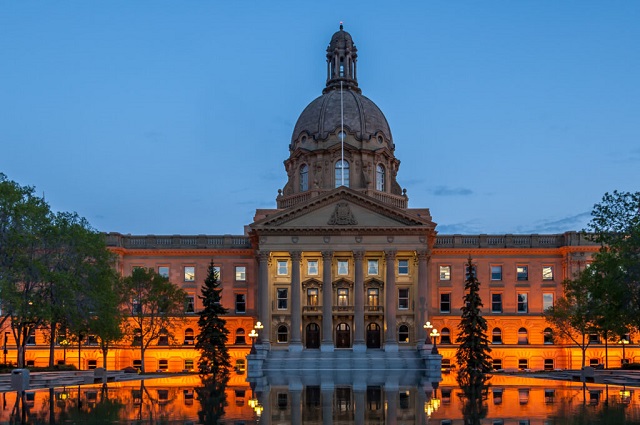
Minister of Municipal Affairs Ric McIver issued the following statement in response to Calgary City Council’s vote to extend the right to vote to permanent residents:
“Yesterday, Calgary city council passed a motion advocating for permanent residents to be extended the right to vote in civic elections. Alberta’s government has been clear since the beginning: only Canadian citizens are able to vote in civic elections. That will not be changing.
“The Canadian Charter of Rights and Freedoms affirms the right of every Canadian citizen to vote and to run as a candidate. This right extends to voters in municipal, provincial and federal elections.
“Protecting our democracy is of the utmost importance. Our provincial election legislation, like the Local Authorities Elections Act, has also been clear since its inception that voting is a right of Canadian citizens.
“Alberta’s government is also ensuring that voting is accessible for more Albertans. The Municipal Affairs Statutes Amendment Act proposes to enable special ballot access for any voter who requests it, without having to provide any specific reason such as physical disability, absence from the municipality or working for the municipal election. The ministries of Seniors, Community and Social Services and Service Alberta and Red Tape Reduction are also making it easier for individuals to obtain the identification Albertans need for a variety of services, including the ability to cast a ballot.
“Our government will continue to protect the integrity of our elections and make sure voting is accessible for all Albertans who are Canadian citizens.”
-

 Education1 day ago
Education1 day agoSupport a young reader through the Tim Hortons Smile Cookie campaign
-

 Business1 day ago
Business1 day agoWEF panelist suggests COVID response accustomed people to the idea of CBDCs
-
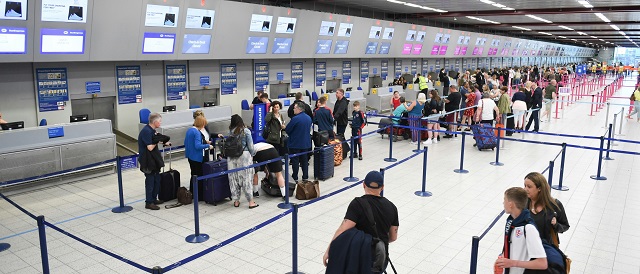
 illegal immigration1 day ago
illegal immigration1 day agoFlight Docs Reveal Which Cities Are Receiving Migrants Under Biden’s Parole Program
-

 Environment1 day ago
Environment1 day agoJournalism Misrepresent Climate Science
-

 Fraser Institute1 day ago
Fraser Institute1 day agoCanada can solve its productivity ‘emergency’—we just need politicians on board
-
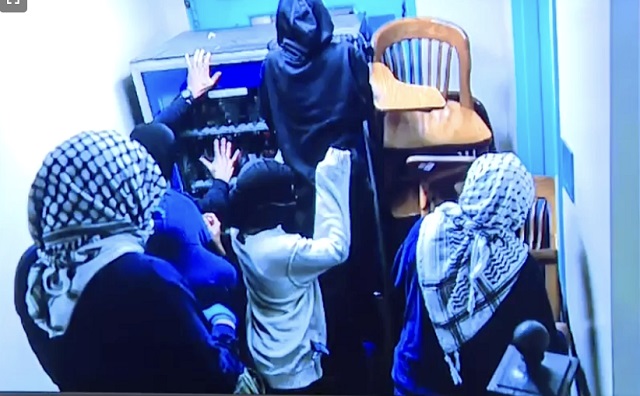
 International1 day ago
International1 day agoNYPD storms protest-occupied Columbia building, several arrested
-
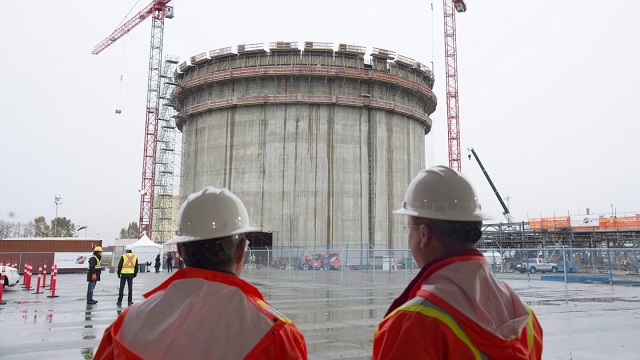
 Canadian Energy Centre2 days ago
Canadian Energy Centre2 days agoNorth America LNG project cost competitiveness
-
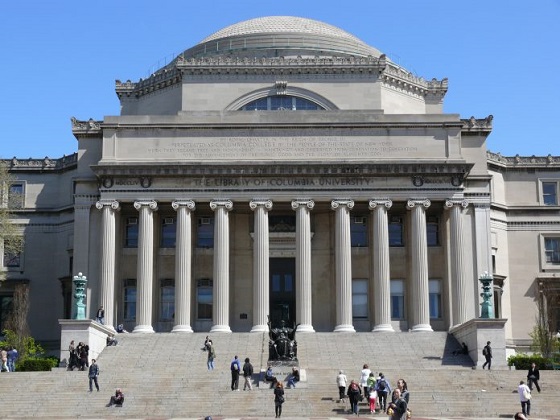
 conflict2 days ago
conflict2 days agoColumbia on Lockdown After pro-Palestinian Protesters Take Over Building, Hold Janitors Hostage






